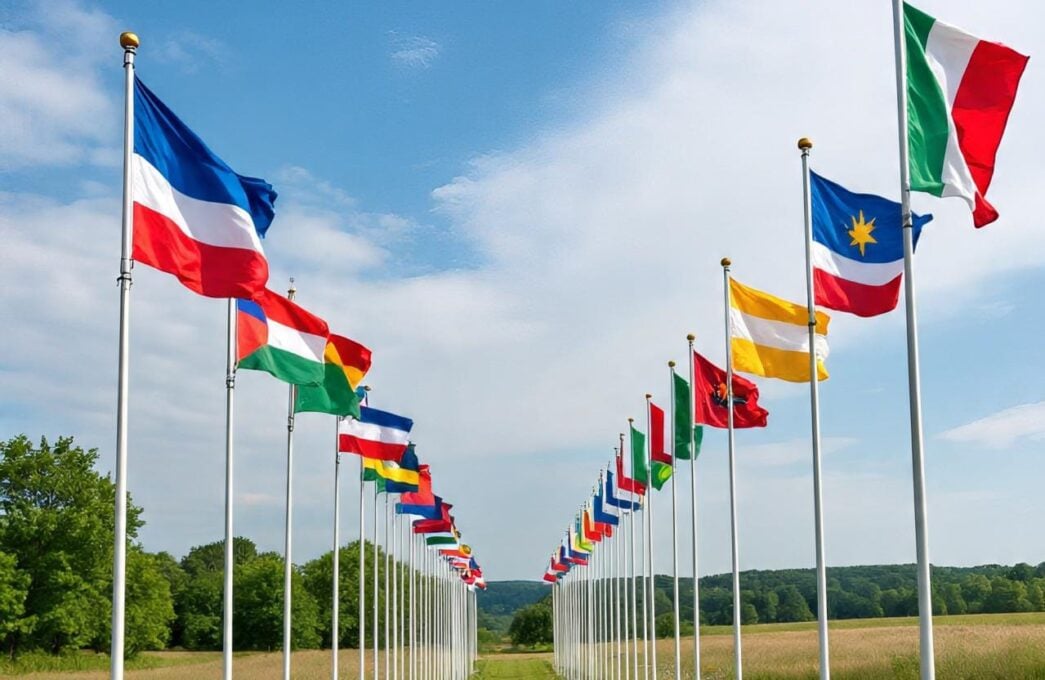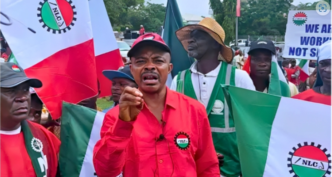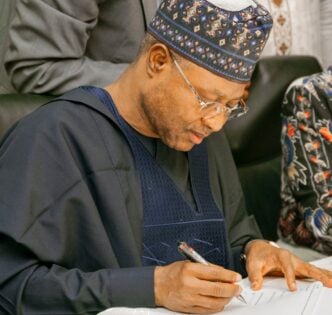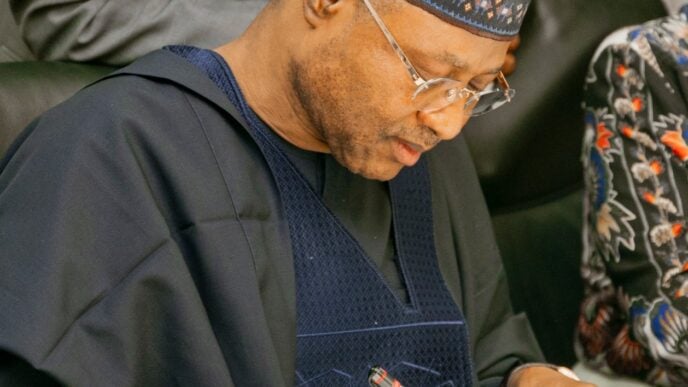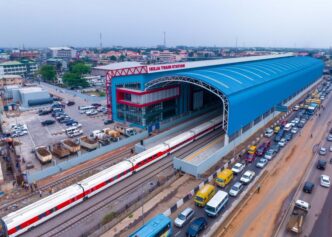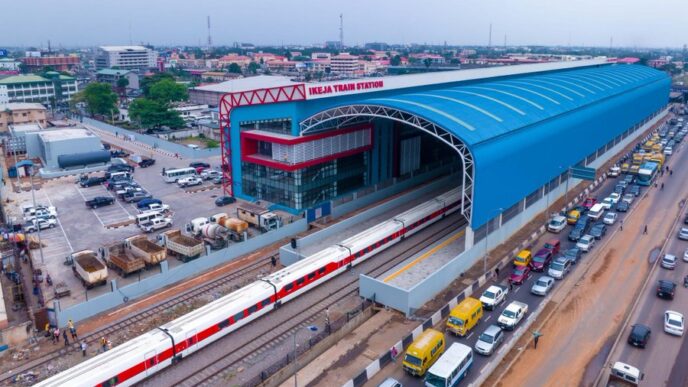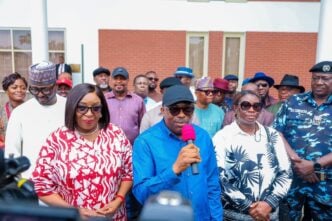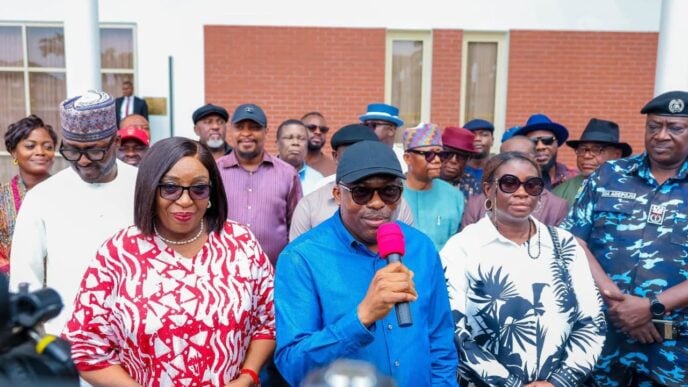Photo credit: Meta AI
BY GODSWILL BLESSING
After a review of Nigeria’s ‘Father Christmas-like’ foreign policy of good neighbourliness and African-centeredness, it is worrisome to conclude that the formulators of this policy either lacked vision, or were intoxicated by the idea of placing Nigeria in the position of Africa’s ‘Mr. Nice Guy, unbeknownst to them, that nice guys always finish last. On October 7, 1960, just a week after independence, Prime Minister Sir Abubakar Tafawa Balewa delivered Nigeria’s maiden speech at the United Nations General Assembly (UNGA) in New York. That speech paved the way for a broad principle of Nigeria’s foreign policy of non-alignment, African solidarity, respect for sovereignty, and commitment to international peace and cooperation. This is widely regarded as the first official articulation of Nigeria’s foreign policy.
The key integral part of this policy framework includes ‘Africa as the master piece’. The idea entails that Nigeria’s destiny is tied to Africa, particularly, and the world generally. In other words, Nigeria’s placenta is tied to Africa, which is somewhat true but too exaggerated. It also states Nigeria’s commitment to supporting the decolonisation of Africa and the liberation of countries still under colonial or apartheid rule. This doctrine formed the base of subsequent updated frameworks. Also contained in this framework is the policy of non-alignment, which is a deviation from our main focus, respect for Sovereignty & Territorial Integrity, Commitment to International Peace and Security, Promotion of Economic Cooperation, which are great additions, and notably, the idea of good neighbourliness.
Sadly, nowhere in the speech were the benefits Nigeria stands to gain clearly stated formally or discussed informally. I guess what the amiable Prime Minister was interested in was the deceitful nomenclature title of the ‘big brother’ of Africa, which heightens my curiosity as to why there was no clearly articulated national interest. This led to the eventual argument that Balewa’s policy was too altruistic: focusing on generosity (peacekeeping, funding liberation movements, supporting neighbours) without outlining how these actions would directly serve Nigeria’s domestic interests (poverty reduction, infrastructure, national development, and economic stability). One would think subsequent documents would address these abnormalities, but unfortunately, that wasn’t the case.
Advertisement
A look at the next structured articulation came under General Murtala Mohammed and General Olusegun Obasanjo (1975–1979). Yet another speech by General Murtala Mohammed at the reformed African Union summit, then known as the OAU, held in Addis Ababa, marked yet another infusion into Nigeria’s foreign policy that brought the country little more than international recognition. This revised policy placed Africa as the centrepiece as usual, strengthening Balewa’s line, but this time more assertively. It also prioritised support for liberation struggles in Southern Africa, Angola, Mozambique, Zimbabwe, and South Africa against apartheid. This same South Africa whose citizens today often display deep resentment toward Nigerians. Perhaps, they are unaware of Nigeria’s crucial role in their liberation. Or should we classify the xenophobic attacks on foreigners, especially Nigerians, as one of the ‘benefits’ of our good deeds? Dwelling a bit on the South African liberation struggle, records have it that Nigeria spent approximately $5 million annually in subsidies to the African National Congress (ANC) and the Pan Africanist Congress (PAC) during the 1970s.
It’s also worth noting that in 1976, Nigeria established the Southern Africa Relief Fund (SAFR) under General Olusegun Obasanjo. Most notable amongst the contributions was the $3.7 million from the government, Obasanjo’s personal donation, and the statutory taxing of civil servants, popularly known as the Mandela Tax. In just six months of 1977, public contributions reached $10.5 million. According to estimates from the South African Institute of International Affairs (SAIIA), Nigeria’s total contributions, including financial aid, sanctions, oil embargoes, opportunity costs, and symbolic diplomacy, exceeded $61 billion between 1960 and 1995. Despite all these sacrifices to a country that was neither a neighbour nor a natural regional ally, one wonders: what has Nigeria truly gained in return? Perhaps our heroes’ past never imagined that these same South Africans would one day tag Nigeria as their arch-enemy. Who would have thought that after all the sacrifices, Nigeria would be rewarded with xenophobic attacks and resentment? Well, as the saying goes, no good deed goes unrewarded.
The Shehu Shagari civilian administration of 1979 marked an early structured review of Nigeria’s foreign policy by scholars, diplomats, and policymakers. Also, his administration convened the 1981 Nigerian Institute of International Affairs (NIIA) conference on foreign policy, an organization still functional to date. One would think this would mark the drastic shift of Nigeria’s foreign policy, as professionals were on board the deliberation team. But again, it was another review that didn’t give much hope. Maybe the most notable infusion was the attempted economic diplomacy, which focused on oil diplomacy, trade, and attracting foreign investment, which I don’t consider worthy of applause because it wasn’t any different from the previous documents. In 1989, General Babangida set up the Technical Committee on the Review of Nigeria’s Foreign Policy, and this step produced the well-known document: “Nigeria’s Foreign Policy in a Changing World.” The first of its kind in a documented form.
Advertisement
It was Nigeria’s second major structured foreign policy review (after Shagari’s 1981 NIIA conference). It was led by a Technical Committee on the Review of Nigeria’s Foreign Policy and chaired by Professor Ibrahim Gambari. To be fair to the committee, I would regard this as the first policy that actually looked inside and decided to place a substantial emphasis on our needs. I think this was a result of the dwindling effects of colonisation. By the late 1980s, most of Africa’s liberation struggles were ending (Zimbabwe 1980, Namibia 1990, and apartheid winding down in South Africa). Nigeria’s policy emphasis as well shifted from fighting colonialism/apartheid to economic development and survival. This marked the introduction of Economic Diplomacy, meaning Nigeria would pursue foreign relations that directly boosted trade, investment, debt relief, and technology transfer.
Amazingly, I will call this policy the beginning of the nation’s self-awareness. At this point, our heroes realised that the international system is nothing but a jungle, and survival of the fittest. It was and still is realism at its peak, justifying the saying, “if you snooze, you lose.” It is a system that exposes the struggle for the protection of the stronger party’s interests. With this review, the leaders of our great nation understood that they had a responsibility to look out for Nigeria’s interests, and that no one else was going to do it, not even South Africa, to whom we had disbursed billions in aid. The Obasanjo administration’s Foreign Policy review of 1999 was not much different from the previous issues addressed, such as peacekeeping missions, reintegration of Nigeria into the International Community, economic diplomacy, etc. The notable achievement of the era’s review was the debt relief secured by Nigeria.
Umaru Musa Yar’Adua’s citizen diplomacy foreign policy made more sense as it was a shift from elite/state-focused diplomacy to protecting the rights and interests of Nigerians abroad. This Policy Supported regional peacekeeping but with less activism compared to previous policies. Finally, this policy addressed the welfare of Nigerians in the diaspora, which gave a sign of relief to citizens. The non-prioritisation of citizens’ welfare at home and abroad would make one wonder if the formulators of the previous policies hated Nigerians so much that the point was to totally alienate them from the previous proceedings.
The most impressive of all the policies would be the Goodluck Jonathan review of 2010, which notably saw Nigeria securing a Non-Permanent Seat on the UN Security Council (2014–2015), thereby strengthening Nigeria’s international standing. The core of foreign policy lies in representing a country’s interests in the League of Nations, whether at the regional, continental, or global level, which Nigeria rightfully deserves due to its contribution. A couple of issues addressed by the previous documents were carried over to the new review. Nevertheless, this period marked a more visible representation of Nigeria in the international arena, something I believe was long overdue.
Advertisement
In summary, I am not insinuating that placing Africa at the centre of our foreign policy is wrong, but as the saying goes, charity begins at home. Of what use is it to look after another man’s house when ours is on fire? I strongly insist that the welfare of Nigerians, both at home and abroad, the protection of our territorial integrity, and the pursuit of economic sustainability should form the true centrepiece of Nigeria’s foreign policy. Our leaders must adopt a more self-interested approach to foreign policy. One built on the principle of give and take. The attitude of playing the “Santa Claus” of Africa must come to an end. If Nigeria is expected to give, then it must also receive in return, directly or indirectly, politically, economically, and otherwise. Since we are experts at copying and pasting from Western countries, why don’t we emulate the strategic nature of their foreign engagements?
Take the United States as an example: much of its foreign aid is tied, meaning recipient countries are required to spend a portion of that money on American goods, contractors, or services. Additionally, countries like Egypt and Israel receive billions in U.S. military aid annually. In return, the U.S. secures regional influence, access to military bases, and alignment with its foreign policy objectives in the Middle East. This means that the U.S. aid is not charity; it is an investment in influence, markets, and security.
Has Nigeria derived any real strategic benefit from its continuous humongous contributions to the AU and ECOWAS? To buttress this point is the Côte d’Ivoire Political Crisis of 2010. While Nigeria, through ECOWAS, took a democratic stance by insisting on the recognition of Alassane Ouattara’s electoral victory, and even threatened military intervention against Laurent Gbagbo, South Africa took a different course. The then South African President Jacob Zuma’s government pursued power-sharing negotiations and even sent envoys to Gbagbo, a move that undermined/insulted ECOWAS’s and Nigeria’s authority. This not only creates confusion within the African Union but also exposes the deep-seated competition between South Africa and Nigeria.
Nigeria as a nation must adopt the principle of diplomatic aggression, a Strong marketing strategy, and a more assertive stance in international diplomacy if we must be taken seriously as a nation in the community of nations. At the moment, there are speculations about Nigeria becoming a partner country of BRICS. The question is, will Nigeria be just an ordinary partner like “every Dick Tom and Harry, or an influential partner member state involved in calling shots, and strategically positioned in decision-making that benefits the nation? In international politics and diplomacy, the only thing that matters is interest. It is also pertinent to note that there is no free lunch in global politics, as everything comes at a price. So why does Nigeria continue to act benevolently without attaching a price to its generosity?
Advertisement
Godswill Blessing can be contacted via [email protected]
Advertisement
Views expressed by contributors are strictly personal and not of TheCable.

